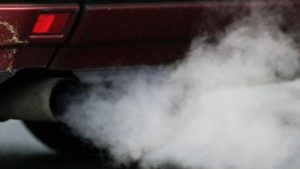Volkswagen (VW) was once the number one car producer in the world at the end of 2015 until the emission scandal, which has cast a shadow on its business. ‘Defeat devices’, which cheated on the vehicle emission tests by manipulating the information from emissions, were found in over 482,000 VW vehicles in the US alone according to an investigation done by Environmental Protection Agency (EPA).
 However, why does it matter? An analysis by The Guardian shows that those VW vehicles in the US would have released between 10,392 and 41,571 tons of nitrogen oxides (NOx), which is a toxic gas, in the air each year, while the testing result shows that those vehicles would only emit 1,039 tons with the defeat devices. NOx not only leads to ozone pollution but also contributes to fine particulate matter pollution that can affect human health seriously.
However, why does it matter? An analysis by The Guardian shows that those VW vehicles in the US would have released between 10,392 and 41,571 tons of nitrogen oxides (NOx), which is a toxic gas, in the air each year, while the testing result shows that those vehicles would only emit 1,039 tons with the defeat devices. NOx not only leads to ozone pollution but also contributes to fine particulate matter pollution that can affect human health seriously.
As a result, Volkswagen’s stock price fell to about a third of the total pre scandal value and the cost of the scandal is so high that it is yet to be estimated. Moreover, the negative impacts on brand reputation, customer loyalty, and investor confidence will really challenge VW in the future.
From the story of VW, it teaches us a lesson about how businesses should bring not only business ethics but also corporate social responsibility into consideration. Based on the article, “Research shows that business value is created when social responsibility and sustainability are embedded in the company’s culture and core business strategies.” Without these values, a company can never benefit itself or society in the long run.
word count: 259